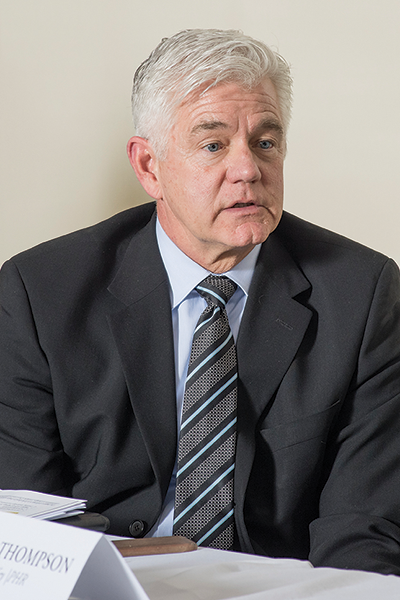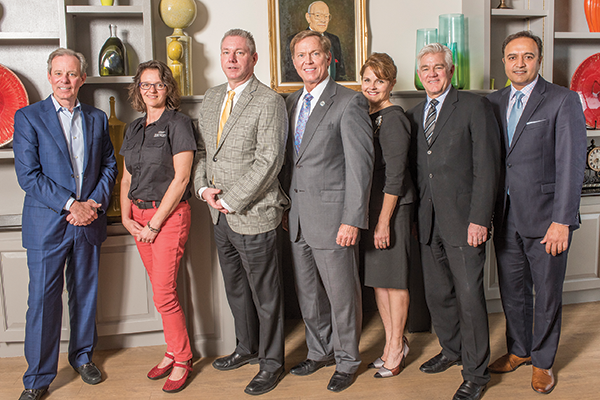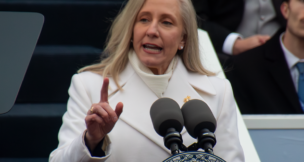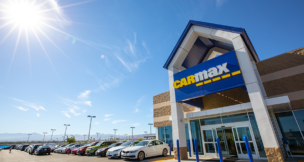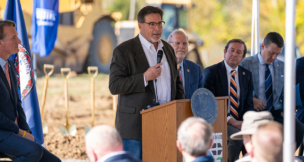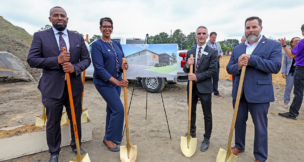Worth a visit
What’s new, different and challenging?
What are the major challenges facing Virginia’s hospitality and tourism industries? That was the topic for a group of industry executives who gathered recently for a freewheeling discussion at the Town Point Club in Norfolk.
Sponsored by Virginia Business and the Virginia Restaurant, Lodging and Travel Association (VRLTA), the roundtable coversation touched on topics ranging from transportation to the growing importance of social spaces as modern technologies make hotels more impersonal.
Participating were: Beth Erickson, president and CEO, Visit Loudoun; Vinay Patel, president, Fairbrook Hotels; Juliellen Sarver, community relations manager, Stone Brewing Co.; Matthew Simmons, president, Capital Ale House; Bryan Stephens, president and CEO, Hampton Roads Chamber of Commerce; Bruce Thompson, CEO, Gold Key | PHR; and Mark Treadaway, vice president, business outreach/acting vice president, corporate risk and strategy, Metropolitan Washington Airports Authority.
Paula Squires, managing editor at Virginia Business, and Eric Terry, president of VRLTA, served as the moderators. An edited transcript follows.
Terry: There’s always discussion when we look at some of the public/private partnerships. How do you work through the public debate of some of those things?
Thompson: I’ve done three public/private partnerships now, with two in the city of Virginia Beach and now one with the city of Norfolk. The projects that we’ve built, starting with the Hilton at the oceanfront on 31st, would have never been built without some public participation … The one that we have ongoing today, The Cavalier Hotel [in Virginia Beach], I think will be another defining moment for the commonwealth. Just know when you get involved that it’s going to be highly contested politically … You have to have a lot of patience and a thick skin to be able to get through the process.
Terry: How do you view that in terms of the craft brewery industry?
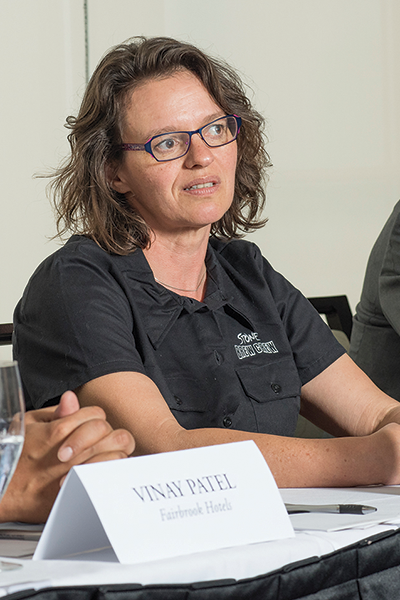
Most of the misunderstandings, though, have to do with the bond financing [that was part of the incentives deal offered to Stone]. The argument that you hear is: Why couldn’t we have used that money for schools? I think once people understand that bonds need to be repaid with interest, and that schools don’t produce that income, then they realize that that money couldn’t have been used for schools …
We will receive $5 million from the state from the [Commonwealth’s] Opportunity Fund and then $2 million from the city. That’s grant money. The rest of it is $31 million in bond money. So when we say that it really is only a $7 million true investment, then people can understand that, and I think the city is benefiting. We’re paying taxes. We’re paying the lease payments every month, and I think we’re bringing a lot of people to Richmond. … We have one customer who drives from Raleigh every month to pick up a keg of beer, and we don’t even have the [Richmond] restaurant open yet.
Patel: I will tell you one thing from a small business owner. You look at the numbers, and, obviously, we’re not going to do anything until the numbers [add up]. Without some of the public/private partnerships, some of these big deals just are not going to happen.
Terry: Vinay, you just opened a hotel in Charlottesville. Bruce has got multiple developments underway. We’re seeing the Renaissance [hotel] over in Portsmouth just purchased by Shamin hotels. Have market conditions finally gotten to where the economics are right?

Erickson: If I could pick up on that, we, as an industry, are doing a better job of telling the story of the importance and the impact of tourism and hospitality to our state. It is starting at the very top all the way down to local councils and elected officials, and their understanding of the connection between those opportunities to drive revenue for the state, for our municipalities. That’s why I think you’re seeing these businesses flourish.
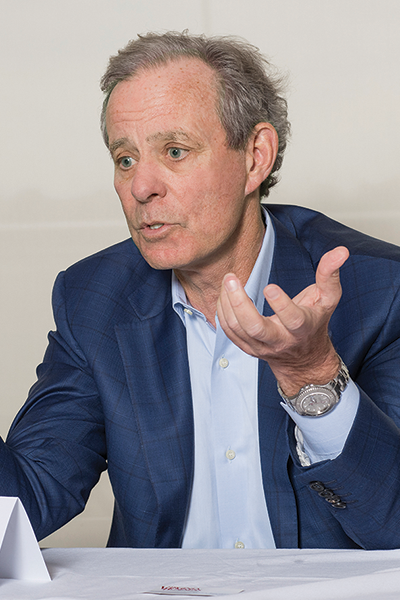
I’m very excited and optimistic with the campus we’re putting together on the oceanfront with Virginia Beach. I’m building a bourbon distillery. We have a wonderful spa complex. We’ve got a golf program.
When [The Cavalier] opens, we’ll be able to do food and beverage service on the beach, which you’re currently not able to do in any other section of Virginia Beach. We’re going to have a real resort complex with the rerouting of Atlantic Avenue. These dynamics are going to play well for this region as far as a hospitality destination. We’re going to have a substantial amount of conference space on the oceanfront, which now opens up all of Hampton Roads [as a meeting destination].
Squires: The craft beer, distillery and wine industries are booming in Virginia. How important are food and beverages in attracting tourists and hotel guests, and what is the impact on existing restaurants and bars?
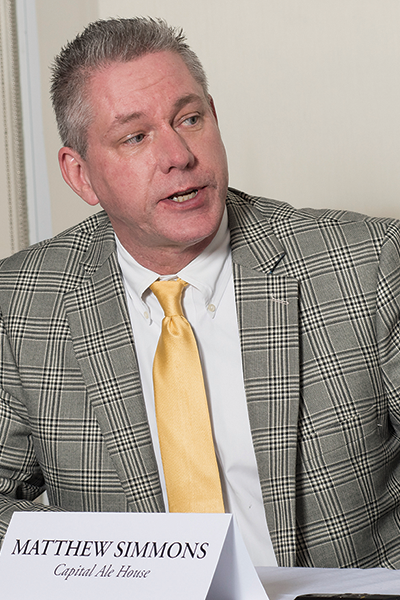
The analogy I give is if you sold Nathan’s hotdogs at your restaurant, sold a lot of them, and then Nathan’s opens up a hotdog stand on the street, and you see a lot of your customers buying hotdogs from Nathan’s, are you going to want to continue to buy Nathan’s hotdogs, or are you going to switch to Hebrew National? A lot of restaurant owners are feeling that pain and having to make that decision.
Sarver: What if that Nathan hotdog stand is going to bring in people who otherwise wouldn’t come? They’re not only going to go to Nathan’s, they’re going to go to other restaurants around there because, quite frankly, they’re not only going to want to eat hotdogs. I think the same thing is true for us. Stone is going to bring people to Richmond who wouldn’t otherwise come, and they’re going to come to our bistro and [beer] gardens once, then they’re going to spread out. So, it’s going to help put Richmond on the map.
I also want to address some of the criticism from the restaurant industry. There are 11 different city economic development programs for any restaurant that wants to come and develop on that side of town … If you come to Fulton or even Church Hill, there are programs there for restaurants to open, to come to those areas that are underserved.
Thompson: It’s kind of like being against Uber if you own a taxicab business. Green Flash [a California craft brewery] opened up down the street from me [in Virginia Beach]. I’m probably the largest restaurant operator in the state, or if I’m not, I’m certainly in the top 5 percent or more. There are a thousand people in Green Flash over the course of the evening drinking beer. Eighty-five percent of those are guys from down at the base, but they were drinking beer someplace else before. Green Flash didn’t have to put in food and beverage. They didn’t have to put in any of the other things we had to do.
That being said, Green Flash is a great economic tool for Virginia Beach. I’m glad to have them there. Let me just tell you what I did to deal with this … Across the street [at The Main hotel in Norfolk], I’ve built a rooftop beer garden. On that roof I have 100 craft beers. So if you like Stone and you like Green Flash, and you like to be up on a roof where 600 people can go with live entertainment, I’m going to give you all the craft beer you want.
Terry: Let’s talk a bit about infrastructure and transportation. In Northern Virginia, we spend a lot of time talking about [Washington Dulles International Airport] numbers. I know there have been discussions in [Hampton Roads] about a regional airport.
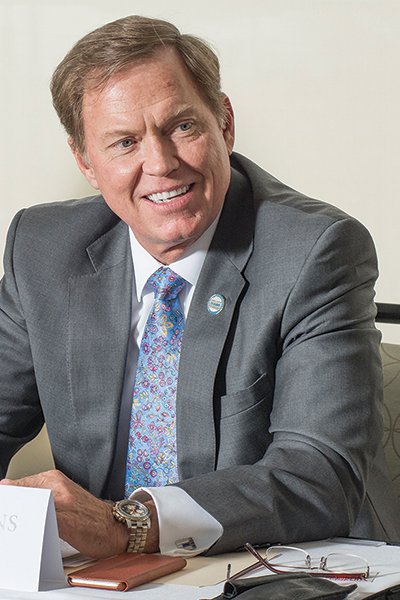
The second is air service. In my opinion and the chamber’s opinion, we’ve got inadequate air service in Hampton Roads. We need to expand our routes. One of the ways that you do that is to improve the airport that we have now. Optimally, what you want to do is build a new airport here in the Hampton Roads region, a mega-region type airport that’s going to be a hub. We’re in full support of doing a feasibility study on that, but while we wait, we believe that we have to improve our current airport.
The third is a rail system. We have a passenger rail system here, an Amtrak system, but it’s totally inadequate. There is a plan for high-speed rail to go from the Northeast all the way down through Richmond, down to Roanoke and on down to Atlanta and areas further Southeast, bypassing Hampton Roads completely. We think that a spur of that high-speed rail has to come down to Hampton Roads, and we’re working hard to try to make that happen.
The fourth category is public transportation … It’s especially applicable to those who work in the hotel and restaurant industry because a lot of your employees are the ones who are using public transportation. We’ve got a fractured system right now where a worker at a hotel may take a bus to work and can’t take a bus back because the bus system stops at 5 p.m. We’ve got to work with organizations to fix that. The other is light rail. We had a referendum to approve light rail to Virginia Beach Town Center, which was voted down. I think there’s a place in Hampton Roads for light rail [expansion.]
Treadaway: The airport authority in the Metropolitan Washington region is definitely going to make it a high priority to go after any kind of infrastructure funding that could become available. Anything we can do to lower our costs and increase our revenues, increase customer service and keep our routes that we have and develop new ones, we have an obligation to do that. Last year, about 45½ million people passed through the two airports [Dulles and Ronald Reagan National] generating 387,000 jobs in the region. Many of those were in Northern Virginia.
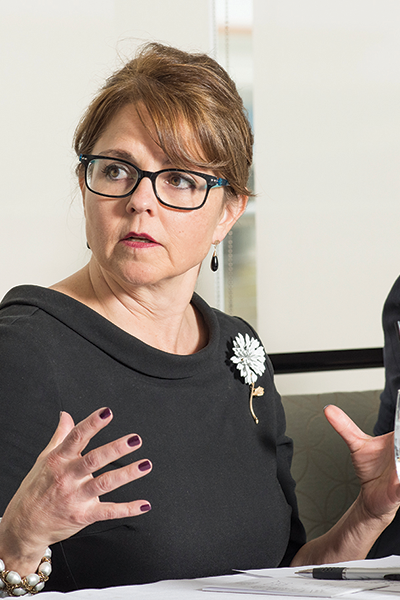
Patel: I echo that. Going back to the question about infrastructure, the Metro for us along the toll road will be absolutely critical. Two years ago when [a nearby Metrorail station] opened, probably one or two of our guests were taken to the Metro. Today we’re probably taking five to 10 guests to the Metro station. I think that’s absolutely critical, and people today are moving in that direction.
Terry: The Silver line has shocked me up in your area in terms of how many tourists are using it. They’ll find the cheaper room rate out that way, and they don’t pay $500 dollars a night [to stay] in the District. They stay in Tysons and spend $200 dollars a night and Metro in. That’s a real driver.
Sarver: For Richmond, we don’t have light rail. But we do have under construction a bus rapid transit line. It’s going to go right past the Stone bistro, and we’re very excited about that. Access to and from the airports is very important. Right now, you land in Richmond — it’s a great little airport — but if you don’t have an Uber app or a car, you’re kind of up the creek. Why can’t we have the bus rapid transit go to the airport, then go through downtown?
Squires: We’re going to move to hotel amenities. Are they becoming more important as a way to compete against short-term, online rental companies?
Patel: I think the most important amenity is internet. It seems like the bandwidth needs are always growing … We were talking earlier (and I tried this a few weeks ago at a Hilton product) where I didn’t have to go to the front desk anymore. I literally go straight to the room and push the button. It’s moving in that direction — the lack of the interpersonal. For us the public space is critical. A lot of the public spaces are becoming friendlier, more soft seating and outdoor seating today. A lot of our hotels are coming out with outdoor fire pits because people don’t want to be stuck inside their rooms.
Squires: What about you Bruce?
Thompson: We were talking just yesterday about iPads for wine lists, and I said, ‘You know, these iPads are great. We have them in a half dozen or more of our restaurants, but what happens is it takes out the interaction with the guest and our server.’ Now it’s one less touch point that we have with the customer. Pretty soon we’re starting to feel like Airbnb. So if you don’t need to talk to anybody about your wine, you don’t need to go to the front desk, so what are you going to do? From our standpoint, it is about creating social spaces, really vibrant and active social spaces where people can get together and feel good about it. The other piece of it is quality and service. We’re loading our properties up with technology, service, social spaces and quality products. Airbnb can’t compete with that.
